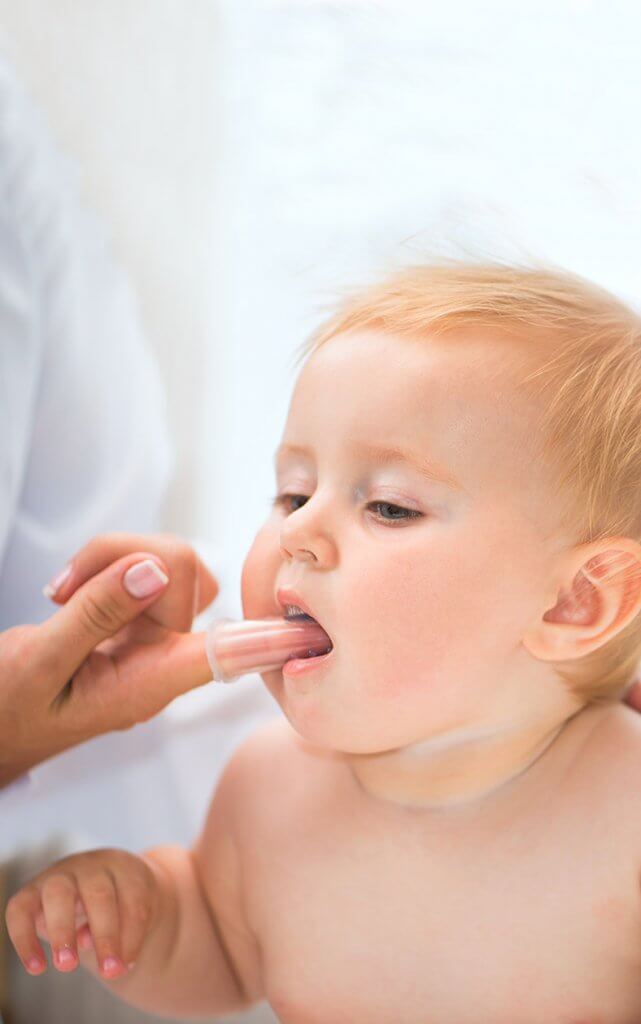Prevention of tooth decay and tips for the proper facial development of babies
Dear Mom,
The idea behind this article is to raise awareness on prevention so that our children do not have tooth decay and a good oral development, which as a result will help them have a healthy facial development.
I am Child Dentist and orthodontist, with more than 20 years experience. Currently I am involved in facial growth guidance for children from birth to eight years of age, which is the most important stage of a child’s development.
I firmly believe that the interaction between the paediatric specialties is very important so that the child grows up healthy in all levels.
Concerning my specialty is vital to start taking care of your baby’s mouth from the first months. Use a silicone brush; it is like a thimble, easy to use and soft so you will not hurt your baby’s mouth. Ideally you should clean your baby’s mouth after breastfeeding or bottle feeding, to remove the remaining milk and avoid its fermentation. If this is not possible, aim to do it at least once a day, preferably in the evenings. Gently introduce the brush and massage with soft and circular movements the surface of the gums. You do not need to use toothpaste, just use water.
You might find it a bit hard at the beginning, this is normal and will get better as the baby gets used to the silicon brush. Clean as much you can or as much as your baby allows you to. If you are only breastfeeding, there will be little to remove as the sucking motion helps clean the mouth.
When you baby starts teething, usually at six months, takes particular care to clean his teeth from the very first day. Baby’s enamel is still fragile and, therefore, more vulnerable to the acids that the bacteria form during the fermentation process. It is very important that the baby does not have tooth decay, by now your baby should feel comfortable with brushing, which not only will keep his teeth clean, but also can help alleviate the ache caused by the eruption of the first teeth.
Teething begins with the two lower incisors and continues with the upper incisors. At this stage the baby is going to be upset, salivating a lot and might even have a fever. This is the ideal time to make an appointment with a specialist. In addition to controlling the baby’s teeth, the doctor will guide you in the development of your baby’s maxillary bones, the role of language and breathing. The temporary dentition or “milk” is completed by the age of three years with 20 teeth in total.
Early prevention and interdisciplinary treatment is important to ensure your child grows up without caries and avoid complex orthodontic treatment in later years and, generating a healthy smile.
Dr. Marisa Santos
MP 31772
Www.dramarisasantos.com.ar

